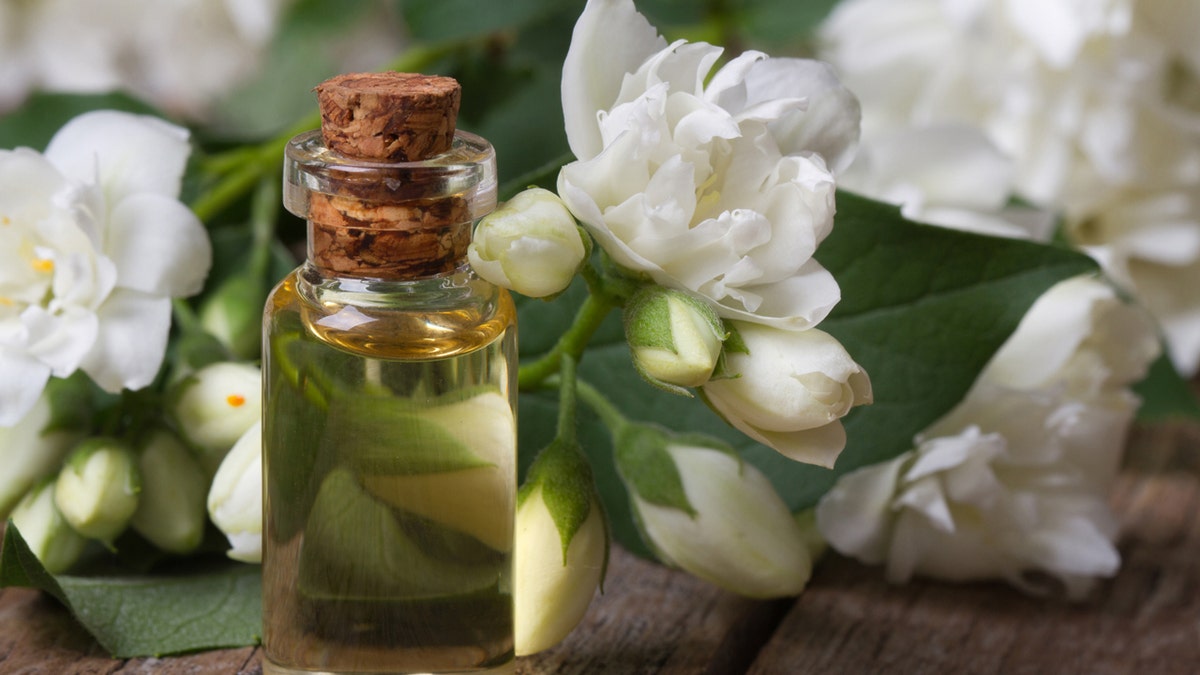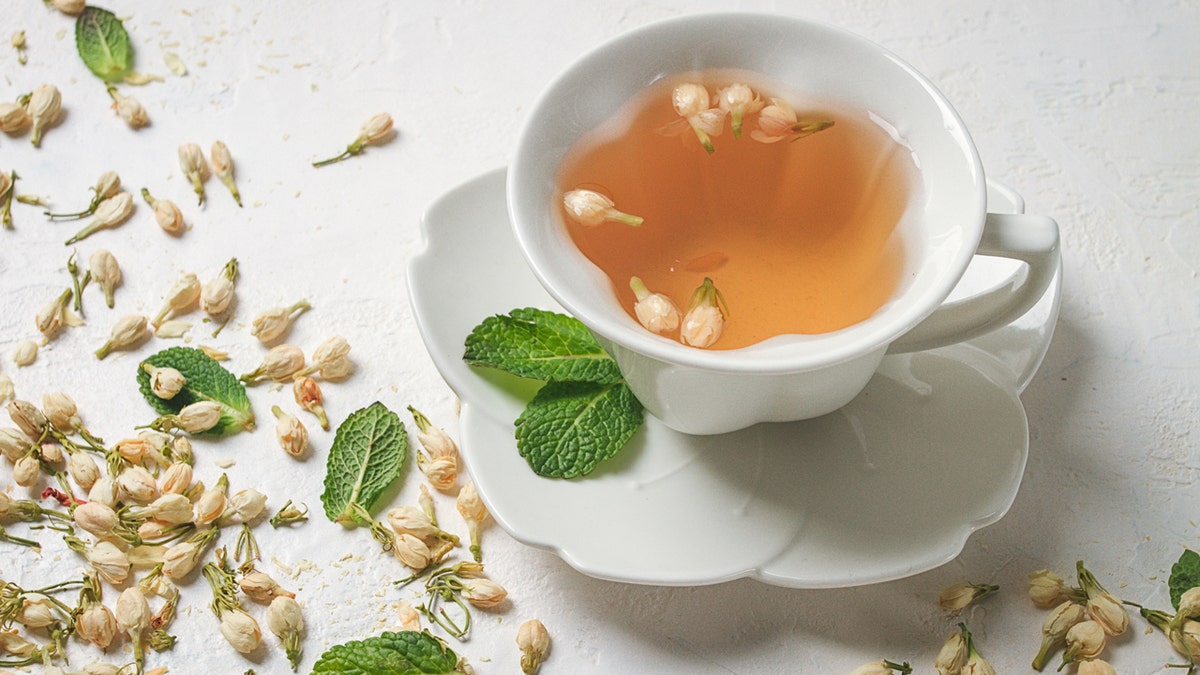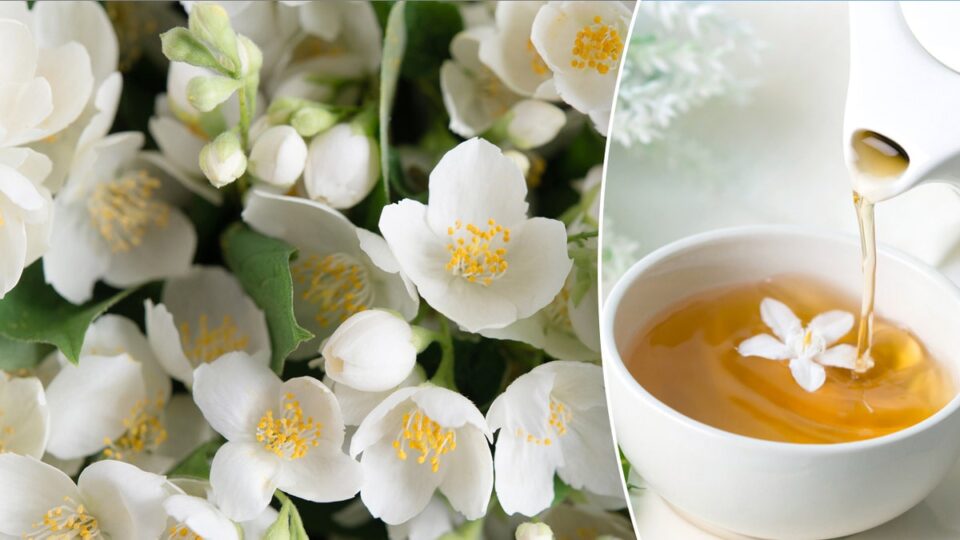Jasmine is full of intriguing health benefits, including potentially aiding weight loss and wound healing, among many others.
Jasmine is “a type of evergreen ornamental shrub with fragrant flowers, usually white flowers, and they are aromatic, meaning they have a strong aroma, very fragrant,” Jenna Volpe, a Texas-based registered dietitian and herbalist, told Fox News Digital in a phone call.
Jasmine can be found in tea, oil and in capsules, making it easy to incorporate into daily routines.
SAUNAS HAVE HEALTH BENEFITS, BUT OVERUSE IS LINKED TO DANGEROUS HEALTH RISKS
Different benefits may result when drinking jasmine tea versus using jasmine oil.
“I would say the essential oil is more for purifying the air or for topical use, [while] the tea is for taking internally — and they both can have many benefits,” Volpe said. “There’s been a lot of benefits shown for skin. To use it topically and then internally can also benefit the skin, but it also has more benefits beyond that.”

Jasmine tea is full of health benefits that you may find intriguing. (iStock)
When looking to add a new herb to your routine, health benefits can result from regular use.
“You would just want to make sure you’re getting enough of it and are being consistent,” said Volpe. “I think a lot of people are not consistent enough and probably not consuming it in the right therapeutic dose to get the benefits.”
Volpe also noted that keeping up with an overall healthy lifestyle to complement the use of a herb like jasmine is important in order to see benefits.
THE HEALTH BENEFITS OF MATCHA, PACKED WITH ANTIOXIDANTS, MAY BE WORTH INCORPORATING INTO YOUR DIET
Read below to learn more about the health benefits jasmine could bring.
- It’s full of antioxidants
- It may aid in weight loss
- It may help skin health and wound healing

Jasmine oil can be diluted and applied to the skin, or it can be placed in a diffuser — these are popular ways in which it is used. (iStock)
1. It’s full of antioxidants
Jasmine is full of antioxidants. It consists of plant-based compounds known as polyphenol, according to Healthline.
These compounds protect cells against free radical damage, according to the source.
“It’s a source of antioxidants, kind of like green tea. It’s actually paired a lot with green tea,” Volpe said.
CLICK HERE TO SIGN UP FOR OUR LIFESTYLE NEWSLETTER
There are several different types of jasmine tea that can provide antioxidants.
“I like organic, loose-leaf versions of the tea better than, say, a commercially made tea bag,” Volpe said.

Jasmine tea is full of antioxidants. To see health benefits, it should be consumed on a regular basis. (iStock)
If you want those extra antioxidants but don’t want to drink tea, jasmine also comes in the form of capsules, which can be an alternative way to incorporate it into your everyday routine.
2. It may aid in weight loss
Jasmine could play a role in promoting weight loss when combined with an overall healthy lifestyle.
For more Lifestyle articles, visit www.foxnews.com/lifestyle
“A new study looked at cold-brew jasmine tea, and it was shown to reduce a bunch of comorbidities associated with metabolic syndrome, like weight gain and obesity, unhealthy cholesterol levels, insulin resistance and dysbiosis, which is like an imbalanced microbiome, and then inflammation,” said Volpe. “And so all of that has to do with altering the microbial profile in ways that would optimize our health.”
When incorporating anything new into your diet, it’s always a good idea to start slow to ensure you don’t have an adverse reaction.

Jasmine can be incorporated into a healthy lifestyle to potentially aid in weight loss. (iStock)
“I mean, there’s always the chance of an adverse reaction with any herb,” Volpe said. “Whether it’s an allergy, allergic reaction, something like that. There’s not a whole lot of research showing side effects [of jasmine]. … It’s a pretty benign, pretty safe herb.”
3. It may help skin health and wound healing
Jasmine has also been known for its benefits involving the skin, including wound healing, as well as treating ulcers and skin diseases.
“It has been clinically proven and used in folk medicine for treating ulcers, skin diseases and for wound healing,” Volpe explained. “I would say the benefits come from antioxidant and antimicrobial activity.”
If using jasmine for wound healing, such as a small cut or scratch, diluted jasmine oil should be used, according to Healthline.
